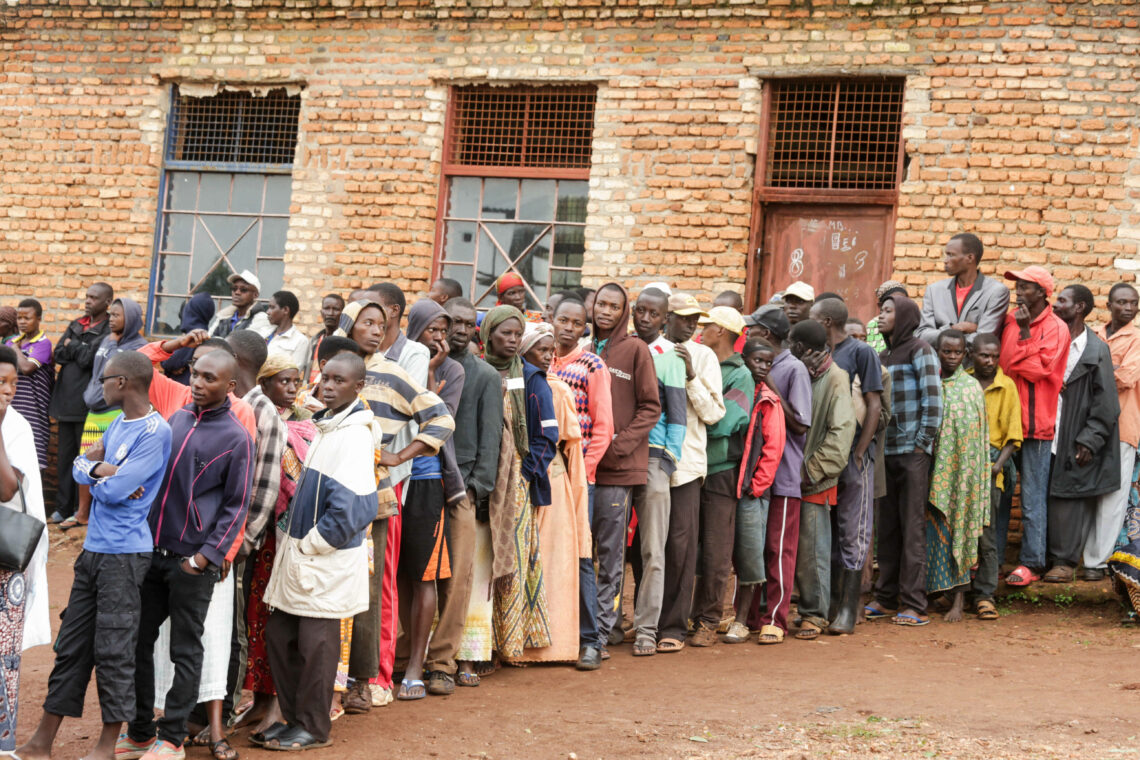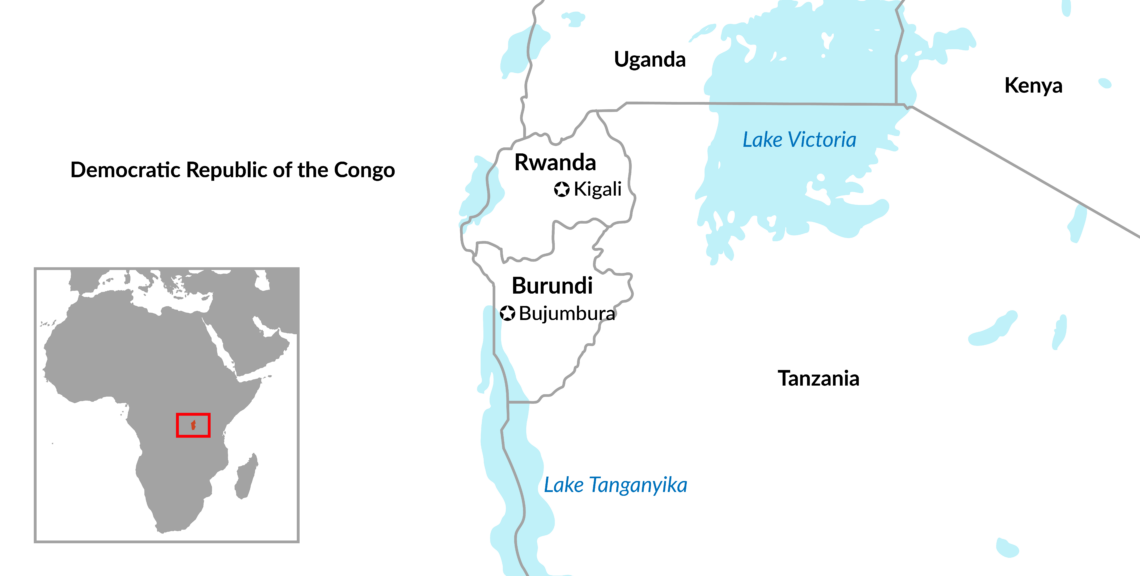Burundi: Turmoil ahead?
In the upcoming elections in Burundi, President Nkurunziza will step down and the successor chosen by the regime will likely become the new leader of the country. However, these developments could trigger significant upheavals.

In a nutshell
- Economic hardship has prompted Burundi’s president not to seek re-election
- President Nkurunziza is likely to remain a key player even after stepping down
- The transition could result in protests and armed interventions
Given the constraints faced by Burundi’s opposition, President Pierre Nkurunziza’s handpicked successor will likely win the May 2020 elections. This leadership change could stabilize the country short-term, but Burundi’s constitutional, political and security framework have significantly shifted since 2015. Internal repression, regional tensions and a fractured army could also make the elections a flash point with long-lasting consequences, both domestically and abroad.
Compromise
In June 2018, President Pierre Nkurunziza announced that he would not stand for re-election in 2020. Instead, he declared that General Evariste Ndayishimiye, the secretary general of the ruling National Council for the Defence of Democracy-Forces for the Defence and Democracy (CNDD-FDD), had been chosen to run. The news was met with a mix of surprise and relief. Probably, President Nkurunziza and the ruling party feared that, without a new leader, Burundi would face renewed sanctions and isolation at a time when the country is going through a severe economic crisis.
The latest events suggest that President Pierre Nkurunziza will remain a key political player.
The latest events suggest that Mr. Nkurunziza will remain a key political player. His personal interests will be safeguarded: recent legislation will grant him the title of “Supreme Leader” (in May 2018 the CNDD-FDD named him the country’s “eternal supreme guide”), and he will be given a generous pension and a retirement villa. More importantly, General Ndayishimiye – who has been at the heart of the ruling elite for the past 15 years – is unlikely to hamper Mr. Nkurunziza’s political ambitions.
The National Congress for Liberty (CNL), Burundi’s largest opposition group, has also announced its candidate, Agathon Rwasa. A former Hutu rebel leader, Mr. Rwasa ran against President Nkurunziza in 2010 and 2015. His candidacy will likely increase political polarization.
Uncertain consequences
In 2018, a referendum ushered in constitutional changes that reinforced presidential powers, consolidated the power of the CDDD-FDD as the country’s dominant party and allowed President Nkurunziza to run for a fourth mandate in 2020 by resetting the clock on previous terms. More importantly, the amendments reversed much of the 2000 Arusha Accords, which marked the end of a bloody civil war triggered by ethnic tensions between Tutsis and Hutus. The peace agreement was based on a carefully designed power-sharing formula: minority representation, equal participation of parties in different branches of government and state institutions, ethnic quotas and a comprehensive reform of the security sector.
The consolidation of CNDD-FDD’s power went hand in hand with co-option, violent repression of the political opposition, and harassment of media outlets and civil society organizations that criticized the regime. In 2019, the activities of several NGOs were suspended because they had refused to reveal their employees’ ethnicity. The government justified the measure with the quota law, according to which 60 percent of employees must be Hutu and 40 percent Tutsi.
Facts & figures

Burundi’s security sector has also changed since the 2015 crisis. The National Defense Force (NDF) is often cited as a successful example of a post-conflict army, thanks to reforms aimed at preventing genocide and coups d’etat. Rebels were integrated with government forces, depoliticized and professionalized. However, after the 2015 crisis, there was a split between those who opposed and those who supported President Nkurunziza’s third term. Many belonging to the opposing camp deserted the army and left the country, while others were persecuted, kidnapped or executed. Whereas this purge was mainly driven by political factors, violence within the NDF also highlights growing ethnic polarization.
Violence against civilians has risen. The Imbonerakure – the youth wing of the ruling CNDD-FDD – is increasingly acting as a paramilitary militia and has been accused of rape, extra-judicial killings and political intimidation. In 2017, the government announced that the 2020 elections would be funded by “voluntary” contributions from citizens, and the Imbonerakure have been forcibly collecting these at roadblocks – in a manner disturbingly similar to the 1994 abuses committed by the Interahamwe militias in Rwanda.
Chronic poverty
Like Rwanda back in 1994, Burundi is a small, poor, densely populated and landlocked country. After some improvements in the post-civil war decade, the country’s economic outlook deteriorated in 2015, when the European Union suspended direct budgetary support under article 96 of the Cotonou Agreement. Violence disrupted markets, trade and livelihoods. Since 2017, the government has struggled to pay civil servants, who account for 80 percent of the country’s salaried workers. Burundi ranks 185 out of 189 countries in the Human Development Index. Two thirds of the population live below the poverty line, and youth unemployment is estimated at 65 percent. Life expectancy in 2017 (52.7 years) was among the lowest in Africa. And though 80 percent of the population depend on agriculture, which accounts for roughly 40 percent of the gross domestic product, growth in the sector is compromised by a lack of adequate policies, low land productivity and the absence of infrastructure. More than 15 percent of the population – 1.77 million people – needed humanitarian assistance in 2019, whereas the number of recorded cases of malaria reached 5.7 million on that same year – a sign that the health sector is on the verge of collapse.
Regional dimensions
Factionalism within the army, mounting violence, high levels of corruption and the government’s perceived inefficiency severely compromise the legitimacy of the ruling regime. In contrast to neighboring Rwanda, where President Paul Kagame’s authoritarian tendencies were outweighed by his visionary leadership and crucial role in the country’s stabilization, in Burundi President Nkurunziza is running out of arguments to justify his presence in power.
Given Burundi’s fragile economic, political and security situation, the upcoming leadership transition could lead to an escalation of violence. The handover of power will be determined by an election which, in light of the recent past and the systematic intimidation of political opponents, is expected to be neither free nor fair. This may give rise to strong popular protests and armed opposition in Rwanda and the Democratic Republic of the Congo (DRC). Among those who could rebel are the Resistance for the Rule of Law in Burundi (RED-TABARA), led by NDF deserters, and the Republican Forces of Burundi (FOREBU), a group founded in 2015 that attempted a coup against Mr. Nkurunziza, and with whom RED-TABARA collaborates.
But RED-TABARA and FOREBU are only two of the several rebel groups operating in the region. They are driven by different purposes, from banditry to ethnic grievances, control over resources or political recognition. They form a complex network characterized by allegiances of variable geometry in a region where, at least until recently, ascension to power was determined by armed rebellions. These groups have periodically been used by leaders to destabilize neighboring countries. As a result, long-lasting diplomatic efforts have failed, politics have become militarized, and distrust reigns.
Violence against civilians has risen.
Tensions have escalated over the last two years. Despite the opportunity created by leadership change in the DRC, relations between Rwanda and Burundi, and between Rwanda and Uganda, have deteriorated amid evidence that the three countries directly or indirectly support armed opposition groups and rebel forces by providing operational bases for recruitment and training and, in some cases, financing.
Many Burundians, including members of the opposition and FNB deserters, fled to Rwanda after 2015, and Bujumbura accuses Kigali of actively supporting them. President Kagame, in turn, accuses the Burundian regime of backing groups such as the Democratic Forces for the Liberation of Rwanda (FDLR) or the Rwanda National Congress (RNC), an armed opposition movement operating in exile and funded by former insiders of the Rwandan Patriotic Front regime, using them as proxies to destabilize Rwanda.
The 2015 crisis also generated significant refugee flows. In 2018, the number of migrants was estimated at 400,000, and the United Nations High Commissioner for Refugees described the situation as a “forgotten refugee crisis.” While this number has decreased, it is still estimated at 335,000, mainly hosted in Tanzania, Rwanda, the DRC and Uganda. This figure is alarming not only because it represents a significant share of Burundi’s 10 million population, but also because migration played a pivotal role in some of the region’s bloodiest conflicts, including the Rwandan civil war and subsequent genocide against the Tutsis, as well as the First and Second Congo Wars.
Scenarios
The May elections will be a critical moment for Burundi, with possible consequences for the entire region. Two scenarios must be considered.
Leadership change, low intensity conflict
Under this first and slightly more likely scenario, President Nkurunziza’s handpicked successor, General Evariste Ndayishimiye, will be elected, even though the opposition (both inside the country and in exile) will claim that the elections were rigged. While Mr. Nkurunziza will retain significant power – not least through parallel structures, including within the armed forces and paramilitary groups – his formal departure will appease international observers and donors, who will focus on prospects of stabilization.
Tensions between Bujumbura and Kigali will slowly ease, as leaders prioritize trade and stability over security concerns. However, the armed opposition will continue to challenge the regime from its operational bases outside the country. While this scenario would bring a relatively peaceful leadership change, it would also fail to improve the economic, political and security situation, meaning the country would likely face another crisis in the medium term.
Internal crisis, regional turmoil
While less likely, this second scenario could also easily become a reality. Though much of the opposition to the CNDD-FDD and General Evariste Ndayishimiye is based outside Burundi – a testimony to the high levels of repression in the political space – widespread domestic anger over the elections could trigger popular protests and create enough momentum for the armed opposition to intervene. This scenario would depend on Kigali’s explicit and implicit position, since Rwanda is now the most powerful player in the region. President Kagame is a champion of integration and free trade within Africa and security concerns may dissuade him from escalating the conflict, especially considering the country’s recent past and its policy of zero tolerance toward armed opposition groups. But regardless of Rwanda’s stance, with the presence of armed groups like the Imbonerakure, instability could degenerate into an ethnic conflict.







